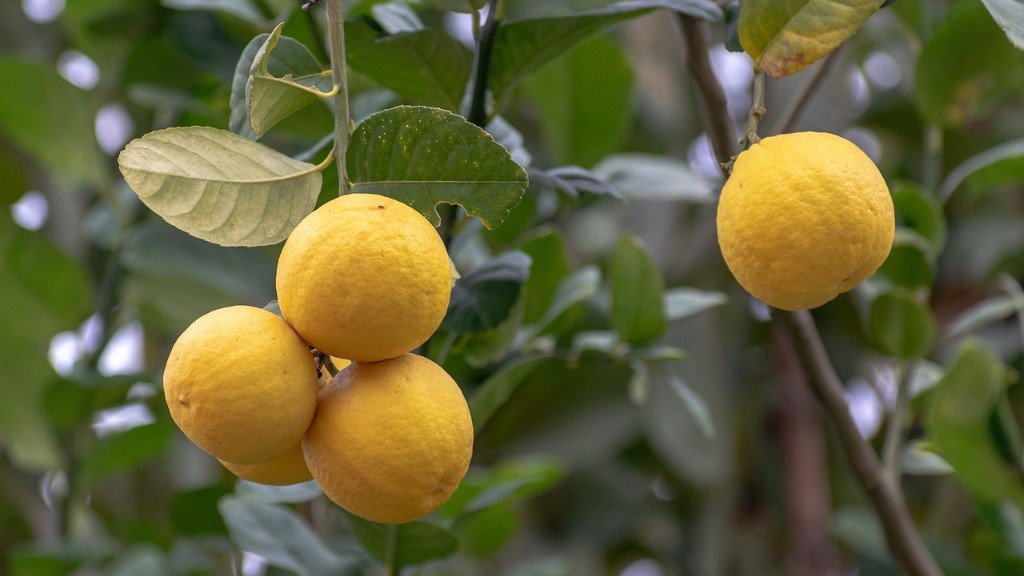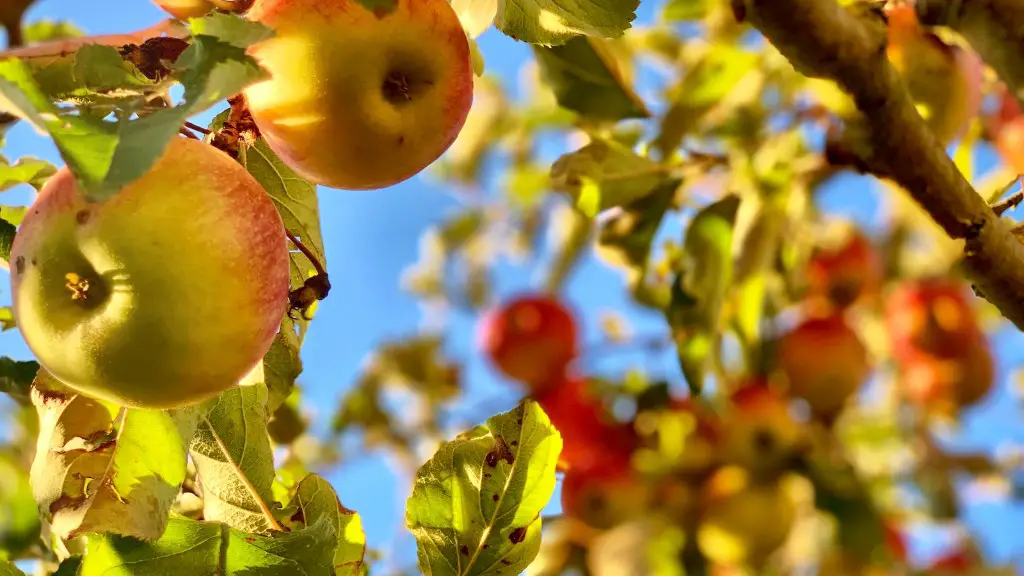When a lemon tree fails to produce lemons, it can be highly frustrating. Lemon trees can be very finicky, so it is important to understand why they won’t bear fruit. There are a number of reasons why a lemon tree may not have lemons, including improper soil, lack of sunlight and not enough nitrogen. Taking the time to evaluate the conditions of the tree is the best way to determine why it isn’t producing lemons.
Improper soil is one of the most common problems for lemon trees. If a tree isn’t getting the proper combination of soil types, it will not be able to thrive. The soil should contain a mixture of clay, silt, sand and a generous amount of organic matter. These will ensure that the tree has the nutrients it needs to survive. It’s also important to maintain a pH level that is slightly acidic, as this is important for lemon trees.
Lack of sunlight can also prevent citrus trees from flourishing. Lemon trees need a minimum of eight hours of direct sunlight per day to thrive. If there is too much shade, the leaves may turn yellow and the tree may not produce any lemons. Providing the tree with enough sunlight can bring it back to health and encourage it to produce fruit.
Nitrogen is another important element for a lemon tree. If a lemon tree isn’t getting enough nitrogen, its leaves will turn yellow and the tree will produce little or no fruit. Adding nitrogen-rich fertilizer to the soil can help boost the nitrogen levels and encourage the tree to produce fruit.
Inspecting the leaves of a lemon tree is also important. If there are brown spots on the leaves or evidence of pests, it can indicate that there is a problem with the tree. Treating any pests or diseases that affect the tree is key to getting it back to health and encouraging it to produce fruit.
Not Enough Water
Watering a lemon tree is important to keep it healthy and productive. If a lemon tree isn’t getting enough water, its leaves may start to turn yellow and the tree may not produce any lemons. A lack of water can also cause the tree to become weak, making it more susceptible to pests and diseases. To ensure the tree is properly hydrated, make sure to provide it with a steady supply of water.
Fertilization
Fertilizing a lemon tree is necessary to keep it healthy and promote healthy fruit production. Citrus trees require different types of fertilizer than other trees, so it’s important to choose the right one. A fertilizer that is high in nitrogen and phosphorus, such as ammonium sulfate, can help promote healthy fruit production. Additionally, make sure to fertilize the tree on a regular basis to ensure it gets the nutrients it needs.
Repotting
When a lemon tree begins to outgrow its pot, it’s important to repot it in a larger container. Repotting will provide the tree with more space for its roots and encourage healthy growth. Before repotting, it’s important to inspect the tree for signs of disease or pests. Also, repotting should be done carefully to avoid damaging the roots and causing further stress to the tree.
Weather Conditions
Weather conditions can also affect the health of a lemon tree. Temperatures that are too cold or too hot can cause the tree to become either undernourished or stressed. It’s important to keep an eye on the temperature in order to make sure it doesn’t become too cold or hot. Also, if temperatures drop too low, it’s important to cover the tree with a blanket to protect it.
Age of the Tree
The age of a lemon tree may also affect its productivity. If the tree is young and hasn’t had a chance to mature, it may not produce any fruit for some time. Generally, it takes about two to three years for citrus trees to produce fruit. Applauding patience and providing the tree with the proper conditions will help increase its chances of producing fruit.
Pruning
Pruning is another important factor for citrus trees. This can help the tree stay healthy and encourage it to produce more fruit. When pruning, it’s important to maintain the shape of the tree while also removing any dead or diseased branches. This will help keep the tree healthy and encourage it to produce more fruit.


